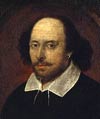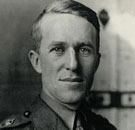A short summary of some aspects of T.E. Lawrence Life
- Thomas Edward Lawrence was born on 16 August 1888 in North Wales.
- Lawrence studied history at Jesus College Oxford University
- For his history thesis, he studied Crusader castles in Syria. He loved the idea and concept of medieval chivalry.
- As a youngster, he was very shy but had a precious mind and strong independent attitude to life.
- He also liked to push himself to the limit, cycling, walking and asbtaining from food and drink to test himself living in challenging circumstances.
- In 1909 T.E.Lawrence first visited Syria and Palestine. He stood out from his contemporaries by quickly learning the language of the locals and expressing interest in what they knew. The typical attitude of British officials at the time was one of a master-servant relationship.
- In 1914, Lawrence, working for British intelligence was part of an expedition exploring northern Sinai, carrying out reconnaissance under cover of a scientific expedition.
- He had four brothers, all born in different parts of the British Isles
- During the war, Lawrence lost two brothers on the western front, and he felt guilty about his office-job in Cairo. It wasn’t until October 2016, he could get involved in active service in the middle-east.
- Lawrence’s personal qualities and interest in Arab culture enabled him to gain the confidence of Arab rebels and he was appointed to be the British army’s liaison officer.
- Lawrence was conscience-stricken by the dual promises made by Britain and France, which promised full independence to Arab nations, whilst secretly wanting to keep the main areas of influence as part of the British and French empires.
- When Lawrence embarked on his daring 600-mile camel trek to capture the port of Aqaba, he had not informed anyone in the British Army.
- In Nov 1917, Lawrence was captured by Turkish forces in the town of Deraa, where he was tortured before escaping.
- After the war, Lawrence campaigned vigorously for the cause of the Arabs trying to prevent the Skyes-Picot act which denied Arab self-determination. He was unsuccessful.
- In 1919, he predicted full-scale Arab revolt against British rule in Iraq. His predictions proved to be true, with a bloody revolt in May 1920.
- T.E.Lawrence was a polyglot fluent in many languages including French, German, Latin, Greek, Arabic, Turkish and Syriac.
- In 1921, Winston Churchill appointed Lawrence as an adviser to try and clear up the mess in Iraq, but in 1922 Lawrence resigned to join the RAF
- T.E.Lawrence twice changed his name to avoid the fame of his war exploits. John Hume Ross and Thomas Edward Shaw.
- After the first world war, he enlisted as a private in the British Army, not wanting any position of responsibility.
- T.E. Lawrence left the RAF in February 1935 and died on 19 May following a motorcycle accident.
- T.E. Lawrence was made a Companion of the Order of the Bath and awarded the Distinguished Service Order and the French Légion d’Honneur.
- However, in October 1918, he refused to be made a Knight Commander of the British Empire.
- T.E. Lawrence was only 5’5″ – quite short for the time period.
- T.E. Lawrence was described as ‘the untidiest officer in the British Army’. He was well known for his dislike of authority and disregard for rank.
- The British army suppressed any image of T.E. Lawrence during the war because the Turks had put a bounty on his head. The Turks never knew what he looked like. It wasn’t until 1919 that his exploits became known in the UK.
- During the First World War, he claimed to have personally blown up 79 bridges. He perfected the art of leaving a bridge ‘scientifically shattered’ – still standing but unusable. This meant Turkish engineers had to dismantle bridge before they could rebuild.
- T.E.Lawrence was vegetarian and also abstained from tobacco and alcohol.
- He was brought up in an evangelical Christian church, but towards the end of his life did not practise the religion. He wrote in “The Mint” “only the first four words” of the Anglican Creed remained. (“I believe in God”)
- He never married or had a close relationship with anybody.
- Some have claimed that Lawrence was gay, but there is no evidence to support this. He did speak on tolerance of sexual preference in The Seven Pillars of Wisdom.
- His work, The Seven Pillars of Wisdom, written in 1926, is still recommended to American troops in Iraq and Afghanistan today.
- T.E.Lawrence loved speed. It is estimated he was doing just under 100mph on his motorbike before his fatal crash.
- His fatal crash led a leading neurosurgeon to make effective recommendations on the necessity of people wearing crash helmets on bikes.
- Due to his strong support for Arab independence, personal fame and his criticism of the Allied action after the war, some have pointed to conspiracy theories that his death was fortuitous for the British and French authorities.
Related
- Lawrence of Arabia Facts at PBS
Seven Pillars of Wisdom
Seven Pillars of Wisdom at Amazon
Hero: The Life and Legend of Lawrence of Arabia
Hero: The Life and Legend of Lawrence of Arabia at Amazon
Related pages
Famous 

 Famous military figures – Famous military leaders and soldiers, including Alexander the Great, Napoleon, Ataturk, Erwin Rommel, Winston Churchill and Dwight Eisenhower.
Famous military figures – Famous military leaders and soldiers, including Alexander the Great, Napoleon, Ataturk, Erwin Rommel, Winston Churchill and Dwight Eisenhower.
Other links
- T.E. Lawrence – wiki commons photos
- Quotes of T.E. Lawrence
Related


